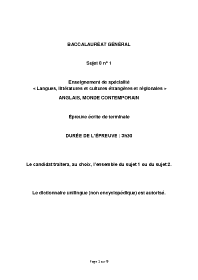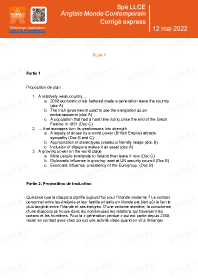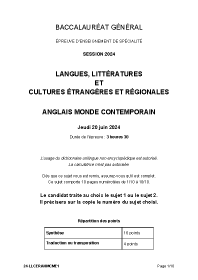Axe d’étude 3 / Repenser la ville
📝 Mini-cours GRATUIT
Vocabulary
📄 Annales PREMIUM

Sujet d'entraînement corrigé —Spé LLCE Anglais Monde contemporain

Annales corrigées de Métropole 2022 – Spé LLCE Anglais MC

Corrigé de Spécialité LLCE – Anglais, monde contemporain 2024

Corrigé de Spécialité LLCE – Anglais, monde contemporain 2023



